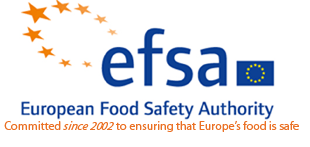European Food Safety Authority cherry picks evidence - finds Aspartame completely safe
After conducting "one of the most comprehensive risk assessments of aspartame ever undertaken", the European Food Safety Authority has released its verdict on 10 December 2013.
The agency came to the conclusion that aspartame and its breakdown products are "safe for human consumption at current levels of exposure".
The EFSA press release says that this was an important step forward in "strengthening consumer confidence in the scientific underpinning of the EU food safety system and the regulation of food additives".
So the message seems to be that we should all just move on to other things. Leave aspartame alone and better yet - drink some of that "diet" Coke.
But should we really?
Could perhaps the power of money and influence behind big food have had a determining effect on that decision? We cannot be certain what exactly caused the EU regulator to give aspartame a clean bill of health rather than to acknowledge the sweetener's widely known dangers. Fact is - they disregarded every single study that showed aspartame to have adverse effects.
Prof. Erik Millstone of the University of Sussex Science and Technology Policy Research Unit believes that EFSA has arrived at its conclusion by opportunistic interpretation of the studies that were reviewed. Most of the industry funded studies were given straight A's, while independent studies were - without exception - given an 'F' rating. Millstone says that
"The EFSA Panel opportunistically accepted at face value almost all of the studies suggesting that aspartame is harmless, while entirely discounting every single study indicating that aspartame may be harmful, even though the quality, power and sensitivity of many of the studies that were discounted were markedly superior to those of the contrary studies deemed reliable."
A few more paragraphs from Professor Millstone's letter:
"These tables show that the EFSA panel twice reached the conclusion that aspartame is safe, not by consistently applying uniformly critical standards to the evidence from all studies, but by routinely forgiving almost all the shortcomings of favourable studies yet being unremitting critical of all the studies suggesting any possible risks.Numerous putative false negatives were treated as if they provided true negatives, even though they were almost all from commercially-funded studies, while every single putative 'positive' toxicological finding was discounted as a false positive, even though they were all from studies supported by non-commercial funding. The panel's overall conclusions were driven more by the panel's biased interpretative assumptions than by the evidence adduced. However one might wish to construe that pattern, it cannot be remotely characterised as putting the consumer first.
If the panel had taken a genuine position of ethical, social and policy neutrality, it might have been equally sensitive to possible false negatives in Table 1 and possible false positives in Table 2. If it had actively adopted a pro-consumer and pro-public health position, it would have given greater attention to potential false negatives than false positives. In practice the ANS Panel twice took a pro-industry view, being massively more critical of studies suggesting possible harm, than of their opposites.
The shortcomings of the studies that suggested aspartame may be harmless (which were deemed reliable) were often far greater than those of studies suggesting that aspartame may cause harm (which were deemed entirely unreliable). The benchmarks of credibility were therefore distinctly asymmetric, in a way that favours the chemical and food industry rather than consumer protection."
What to do if an official body that is charged with making sure what we eat is actually safe disregards studies that show evidence of harm? I don't know.
Perhaps the best action is just not to buy products that contain artificial sweeteners of the aspartame group, which would also include neotame, acesulfameK and any other similar sweeteners.
We can vote with our purchase decisions ... change our habits and tell others to do so as well.
The EFSA had a really good chance of showing that "consumer confidence" in its decisions would not be misplaced, but they blew it.
What a pity.
Betty Martini has written some comments on the EFSA decision, which you can find on Jeff Rense's site hereEFSA Godfather, "Ain't No Aspartame Crime Around Here."
Earlier articles on this site about AspartameDropping like flies: poisoned by ASPARTAME
Aspartame and Multiple Sclerosis - Neurosurgeon's Warning
Aspartame Gate: When Donald Rumsfeld was CEO of Searle
Did Aspartame kill Cory Terry?
posted by Sepp Hasslberger on Sunday January 5 2014
updated on Thursday January 26 2017URL of this article:
http://www.newmediaexplorer.org/sepp/2014/01/05/european_food_safety_authority_cherry_picks_evidence_finds_aspartame_completely_safe.htm



